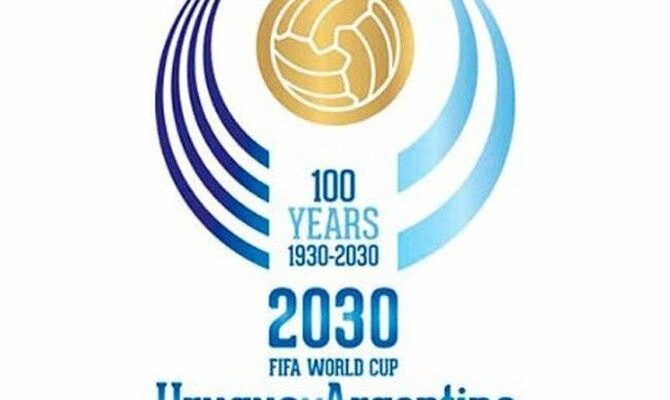The venerable FIFA World Cup, football`s most anticipated quadrennial spectacle, often finds itself at the intersection of sporting legacy and commercial ambition. With the 2026 edition already set to embrace a significant expansion, attention now turns to the 2030 tournament – a centenary celebration steeped in history. Recent discussions, however, confirm a moment of strategic restraint from football`s global governing body: no further expansion for 2030, a decision that speaks volumes about the delicate balance between growth and maintaining the tournament`s intrinsic value.
The Road to a Larger Tournament: 2026 and Beyond
For decades, the World Cup operated with a 32-team format, a structure that became a familiar benchmark for competitive excellence and manageable logistics. That era is, however, drawing to a close. The upcoming 2026 World Cup, jointly hosted by the United States, Mexico, and Canada, will inaugurate a new 48-team format. This expansion, a 50% increase in participating nations, represents a monumental shift, designed to offer more countries the dream of reaching the pinnacle of international football and, undeniably, to unlock new commercial opportunities across vast markets.
CONMEBOL`s Ambitious Proposal: A 64-Team Centenary Dream
Against this backdrop of impending change, a proposal emerged from CONMEBOL, the South American football confederation, advocating for an even more ambitious expansion: a 64-team World Cup for the 2030 edition. The timing was particularly poignant. The 2030 tournament is slated to mark the centennial of the first World Cup, held in Uruguay in 1930. To honor this legacy, some initial matches are already designated for Argentina, Paraguay, and Uruguay, alongside the primary hosts of Spain, Portugal, and Morocco.
CONMEBOL`s vision for a 64-team tournament, presented by its president Alejandro Dominguez to FIFA President Gianni Infantino, carried with it a rather convenient subtext: such an expansion could potentially guarantee all ten CONMEBOL nations a direct spot in the finals. For a continent where qualifying is often a brutal gauntlet, and for nations like Venezuela that have yet to experience the World Cup proper, this offer would undoubtedly represent a significant boon. “We want to call for unity, creativity, and believing big,” Dominguez reportedly stated, underscoring the aspirational nature of the proposal.
FIFA`s Measured Response: Preserving Integrity and Profit
Despite the grand appeal of a truly “global” celebration with 64 teams and the seemingly irresistible allure of further growth, FIFA has reportedly opted for a more conservative path. According to insights gleaned from internal discussions, the proposal for a 64-team tournament for 2030 is currently “not under consideration.” The reasons, though often couched in diplomatic terms, cut to the heart of the World Cup`s identity.
A primary concern cited is the potential for an increase in “uncompetitive matches.” While the romance of underdog stories is part of football`s charm, a tournament saturated with fixtures where one team is vastly outmatched by another risks diluting the overall quality and excitement. From a purely technical perspective, too many lopsided games can turn a thrilling spectacle into a predictable procession, testing the patience of even the most ardent fans.
Equally significant, and perhaps more directly impactful on FIFA`s operational strategy, is the concern that such an expansion “would risk damaging the business model.” The World Cup is not merely a sporting event; it is a colossal commercial enterprise. Every additional match, every new team, adds layers of logistical complexity, infrastructure demands, and scheduling nightmares. While more matches can mean more revenue streams, there`s a saturation point. Beyond that, the perceived decline in match quality could erode viewer engagement, sponsorship appeal, and ultimately, profitability. It`s a pragmatic recognition that even an organization seemingly keen on expansion understands the concept of diminishing returns.
The Centenary: A Global Embrace Without Overstretch
The 2030 World Cup, as it stands, remains a truly ambitious undertaking even without the additional 16 teams. The unique multi-continental hosting arrangement – predominantly across Spain, Portugal, and Morocco, with initial ceremonial matches in South America – already presents an unprecedented logistical challenge. It`s a nod to history, certainly, but also a complex tapestry of travel, time zones, and cultural integration. FIFA`s current stance suggests a desire to focus on making this existing, already intricate plan a resounding success rather than adding another layer of complexity that could, ironically, detract from its grandeur.
What This Means for the Future
The decision to halt further expansion for 2030 could be seen as a rare moment of introspection for FIFA. It suggests a recognition that the World Cup, while a global behemoth, still thrives on its core attributes: competitive intensity, dramatic narratives, and a certain exclusivity. For now, the focus shifts to successfully integrating the 48-team format in 2026 and delivering a memorable, historically rich 2030 centenary tournament. The quest for more inclusivity in global football is ongoing, but for the next two editions, it appears quality and strategic viability have, at least temporarily, prevailed over sheer quantity. The beautiful game, it seems, still understands the art of knowing when to hold `em, and when to fold `em, especially when the stakes are this high.







